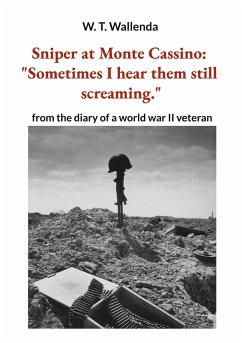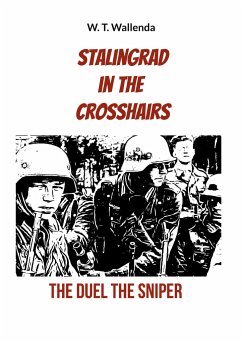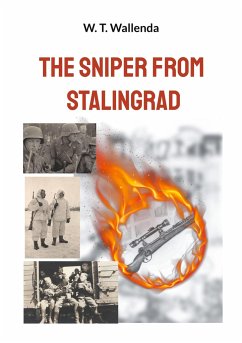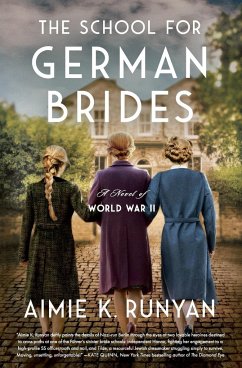
Sniper at Monte Cassino: "Sometimes I hear them still screaming."
from the diary of a world war II veteran

PAYBACK Punkte
0 °P sammeln!
"Sometimes I can still hear them screaming," Josef Altmann said more than 50 years after the Battle of Monte Cassino, lost in thought. He instinctively flinched, ducked to the side, apparently seeking cover from an imaginary approaching shell.As a member of Regiment 361, the former foreign legionnaire witnessed the merciless fighting on the Gustav Line and around Monte Cassino. The war had reached an unimaginable level of cruelty, and death struck mercilessly every day.Altmann was quickly trained as a sniper and immediately sent to the front. He recognizes the faces of his victims through the ...
"Sometimes I can still hear them screaming," Josef Altmann said more than 50 years after the Battle of Monte Cassino, lost in thought. He instinctively flinched, ducked to the side, apparently seeking cover from an imaginary approaching shell.As a member of Regiment 361, the former foreign legionnaire witnessed the merciless fighting on the Gustav Line and around Monte Cassino. The war had reached an unimaginable level of cruelty, and death struck mercilessly every day.Altmann was quickly trained as a sniper and immediately sent to the front. He recognizes the faces of his victims through the telescopic sight. His hands start to shake, his heart races. Goose bumps covered his body. Fear, misery, the loss of his closest comrades and the screams of the dying made him pull the trigger despite his initial doubts. Josef Altmann tells his story without pathos, free of heroism and frighteningly close to reality. This book is an unflinching factual account and should serve as a memorial against war.














